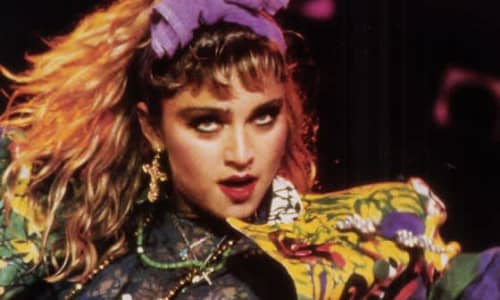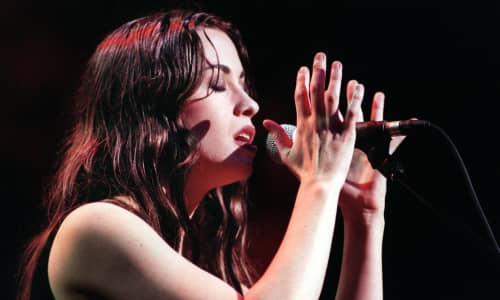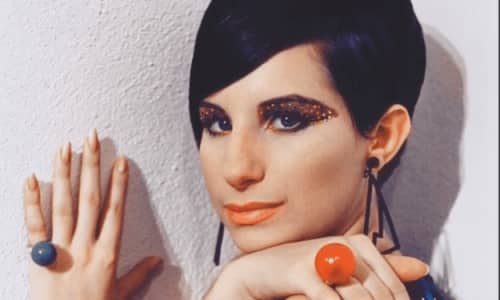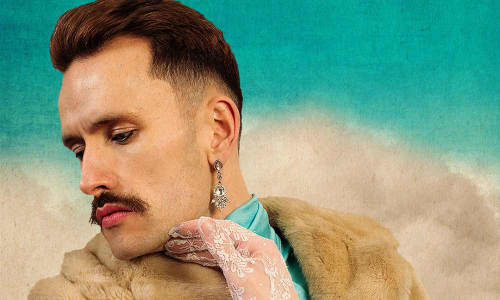From Judy Garland to the Scissor Sisters, music had a profound impact on Luke Hereford’s journey through his queer childhood. He explores the musical influences on our upcoming co-production Grandmother’s Closet (and What I Found There…)
Music has always been at the heart of my work, and Grandmother’s Closet (and What I Found There…) is no exception to that. I’ve always had a deeply personal connection to music, and through the writing process of the play I was able to further reflect on what this means to me as a queer artist.
Music has existed for me for as long as I can remember as a tool for escapism. I never would have found my way into my grandmother’s wardrobe without first hearing the timeless melody of The Trolley Song.

My personal dance parties in Nan’s living room at nine years old would have been really boring if I didn’t have Kate Bush to soundtrack them. And I might still be searching for the physical manifestation of queer joy to this if it wasn’t for Scissor Sisters’ iconic Brit Awards performance in 2005. Because of the power of music, I have always been able to escape to worlds filled with talented ensemble singers in large hats, flawless cartwheels, giant bird puppets, and everything in between.

I initially set out to write this as a play with songs at the core of the storytelling, and in order to do this I had to unpack what else music has done for me personally. I soon realised that escapism is such an important part of growing up queer. It’s not just about entertaining oneself, it’s about existing in a world — even for a fleeting moment — that feels entirely safe. Somewhere where there are no judgemental eyes, where a ten year old boy with a fascination for frills and sequins is not only a normality, but part of the fabric of life.

This escapism through music continued into my teenage years, perhaps even more so in the difficult journey of coming out as queer. When I felt like nobody in the real world understood who I was, or how I wanted to be loved for being my true self, I could plug in my headphones and be soothed by the tender pianism of Tori Amos, scream along to the guttural wails of Björk, or mosh to the relentless angst of Alanis Morissette. All were necessary, and all assured me that everything was going to be alright.

As I carved the path of the play it became really clear that a sort of formative, personal musical journey exists for me, and could only elevate this as a piece of storytelling. Finding the right songs to reflect the right moments of my coming of age has sometimes felt like crafting a concept album. The music in this play is at times celebratory, and at others difficult and challenging — much like the path of growing up queer.

Working closely with David George Harrington (who has masterfully arranged the music) we’ve created a sound world that reflects this through reimaginings and mashups of pop songs from the 1940s and 50s, all the way through to the 80s and 90s.
From this we have reimagined these iconic bangers, merged the melodies, and added backing vocals and a cabaret-style piano element to complete these original arrangements, and indeed discover new narrative angles to each number. It's been a blast bringing each musical episode to life with fantastic queer abandon.
David George Harrington
Throughout the decades, many queer people have found comfort in the same artists. I find it fascinating that in the late 1990s, I found as much personal comfort in Judy Garland’s discography as a five year old in the 1960s might have. So many queer people have connected across generations through artists who have offered comfort, insight and protection to so many of us, and I hope this means that this show’s musical palette will be admired by a broad audience.

Grandmother's Closet (And What I Found There...) runs from 20 - 23 April. Get tickets.
